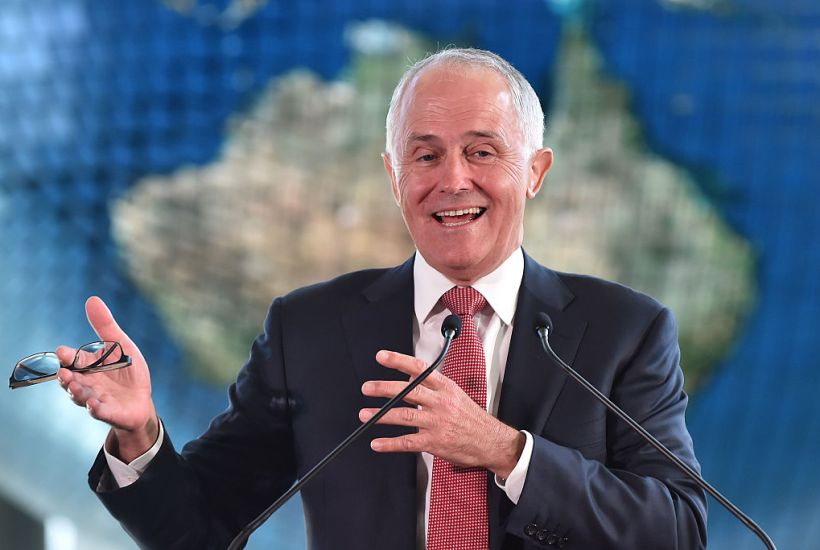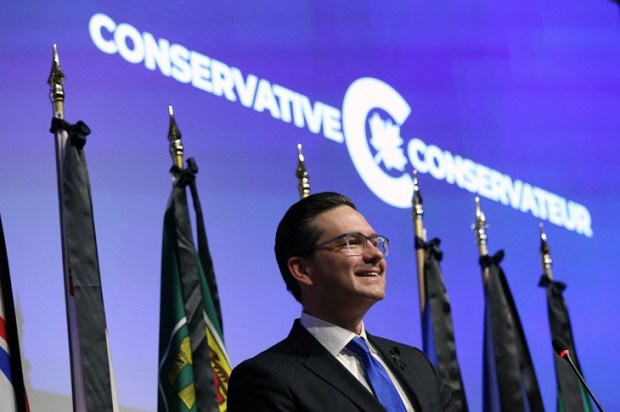Last night I went to sleep on the right. I must have tossed and turned a lot because when I woke up I was in the sensible centre:
Prominent right-wing Australian have seized on Prime Minister Malcolm Turnbull’s claim the Liberal Party was never meant to be conservative…
The Prime Minister made the remarks in a speech in the UK overnight, arguing the party’s founder Sir Robert Menzies deliberately positioned the Liberal Party in the centre when he founded it in 1944.
“Menzies said: ‘We took the name Liberal because we were determined to be a progressive party, willing to make experiments, in no sense reactionary but believing in the individual, his right and his enterprise, and rejecting the socialist panacea,” he said in his Disraeli lecture. “The sensible centre was the place to be. It remains the place to be.”
Mr Turnbull went on to say he was continuing the traditions of the party, and claimed “conservative” or “left wing” labels were irrelevant in 2017.
All the talk and all the memes I’ve seen all over the social media recently about what Robert Menzies said, what exactly he meant (“liberal”? “progressive”? “centre”? “party of innovation”?), and whether it still means the same thing today as it did in the nineteen-forties, reminds me of hair-splitting of scriptural interpretation. There is a place for exegesis in Biblical studies if it helps you find God; in politics it too often leads instead to getting lost up one’s own backside.
I’m not going to dig up Sir Bob’s corpse and perform necromantic rituals to make him speak and reveal to me the secret of what is the Liberal Party. Even if I could, I wouldn’t. I don’t believe I need to.
Every smart politician, political strategist, and political theorist for the past century or so has known this one central truth: that in an essentially binary political party system of our Anglo-Saxon democracies, the party of the centre-right is neither conservative, nor liberal, nor libertarian, nor anti-left but is all of these things.
This is a matter of both what we, right of centre, are for and what we are against. No one pretends that liberals (classical, as opposed to American) and conservatives are identical, the same, or even very similar, but I think we can broadly agree that both these strains of ideology prefer market to state ownership and management, champion individual, family, and civil society rather than the state, and protect institutions from a radical and revolutionary change.
It’s not always a comfortable alliance, and in practice often involves compromises and give-and-take, but it has worked reasonably well for decades now. The additional reason it did so is because however different liberalism and conservatism are, they still have more in common with each other than they have with socialism, democratic or otherwise. In life, nothing unites as much as having a common enemy, which the statist and collectivist centre-left has kindly provided us with since the early twentieth century.
However much we disagree with Labor, Labour or the Democrats, internal unity can be hard. But internal disunity is death. This is again because of the essentially binary, two-party nature of our political system. This is, of course, a slight oversimplification, but the great majority of people still vote for either of the two major parties (or the Liberal/National virtually eternal coalition, which in my state of Queensland is now one party anyway), albeit that majority is becoming progressively less overwhelming.
The Green parties aside, the political forces of the left are and will remain united. There too are differences between the often more conservative blue collar constituency and the professional trendies, but no one is talking about the Labor Party breaking into a Union Party and a Latte Party. This is precisely while the centre-right has to stay united – because fragmented we cannot effectively compete against our united political opponents of the centre-left. Such is the nature of our electoral system that even with a compulsory preferential system of voting a multiplicity of right-wing parties will underperform one ALP.
When as a 22-year old university student a few years off the proverbial boat (actually a Qantas plane in my family’s case) I joined the Liberal Party, I would have described myself as an economic liberal, social conservative, and a staunch anti-communist; all at least in part a legacy of growing up in communist-occupied but otherwise very Catholic Poland.
More than two decades older, though not necessarily wiser, I’m perhaps less conservative on many issues, and more of a “live and let live” type.
What has not changed since that fine September 1994 when I was signed up as part of a stack to unseat the “moderates” then in control of Queensland Young Liberals, is my belief that no matter what internal shenanigans and power struggles we might engage in (and we all do), in the end the Liberal Party has to accommodate us all – liberals, conservatives, libertarians, et al – rather than trying to monopolise and purge.
Life’s not perfect and not fair, so no one will be always happy (“I’ll swap ya same-sex marriage for a balanced budget”) but it’s better to be sometimes happy while doing things in government then always frustrated and impotent in opposition.
Arthur Chrenkoff blogs at The Daily Chrenk where this piece also appears.
Got something to add? Join the discussion and comment below.
Got something to add? Join the discussion and comment below.
Get 10 issues for just $10
Subscribe to The Spectator Australia today for the next 10 magazine issues, plus full online access, for just $10.


























Comments
Don't miss out
Join the conversation with other Spectator Australia readers. Subscribe to leave a comment.
SUBSCRIBEAlready a subscriber? Log in